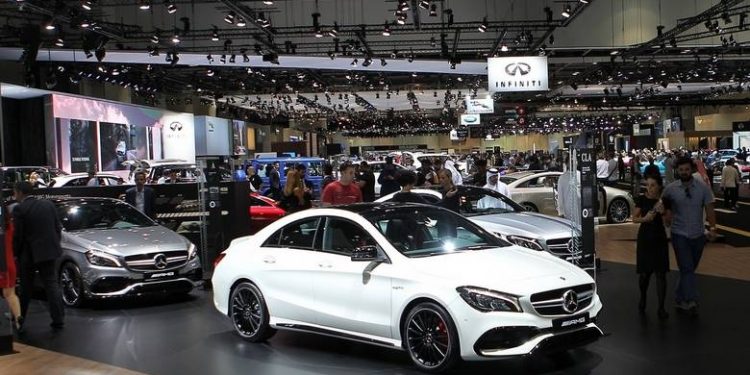The automotive industry in the UAE is expected to face a supply shortage and surge in prices owing to an international semiconductor scarcity. This has cost car dealers around the world $110 billion in product revenues in 2021 and has had a severe effect on car exports to the emirates as well as other GCC countries.
What is happening in the automotive industry?
Certain top automakers in the UAE are gearing up to weather the coming supply shortfall. This is because of an estimated net production loss of 3.9 million units of vehicles in the UAE globally this year.
A global consulting firm named AlixPartners encouraged companies to take steps in advance and build ‘supply-chain resiliency’ in the long run to deal with the crisis. According to the managing director of its middle eastern branch, Alessandro Missaglia, the problem arose with the pandemic primarily.
This got even worse because of a fire in a chief chip-making fabrication plant, poor weather in Texas, and a drought in Taiwan. Normally, these issues would have had only a minor impact on the motor market.
This scarcity is going to bring forward a crisis because the average vehicle needs as many as 1,400 chips. With electric vehicles becoming the norm, this number is going to rise even higher. To deal with this critical problem, companies in the industry are first trying to conquer its immediate impacts.
This also gives long-term large-size investors a chance to insert themselves into the market. According to Missaglia, a majority of the GCC nations want to increase the inventory and quality of their locally made products, thereby enhancing their export market’s value.
Are all companies going to be affected by the crisis?
However, the cost of automobiles from Toyota and Lexus may not surge according to a representative of Toyota Middle East. This is because they have always collaborated with their supplies in monitoring the distribution chains, inventory status, and logistics for every car part every day.

Since this enabled the car makers to be versatile and dynamic according to the situation, they continue to have a decent stock of inventory. They also believe they have enough variety in their products to satisfy diverse consumer requirements. They will attempt to deliver to customers who are presently waiting for their vehicles since they believe in ‘customer-first’.
Similarly, Axel Dreyer, the chief executive officer of Automotive Division, Galadari Automobiles, also feels that their car sales, especially for Mazda, will remain unaffected at the immediate stages of the crisis. However, he did mention that because of the global semiconductor shortfall, their production output would fall next month.
But although this implies a shortage of car inventory, Dreyer claims this will not lead to a rise in car costs. If there is going to be a spike in prices, it would be because of the increased rates of raw materials like steel, plastic, base oil, etc., which is increasing the production cost of automobiles all around. But irrespective of the semiconductor supply shortage, Dreyer claims that Mazda had remarkable inventory volumes in 2021, compared to last year.
Missaglia added that the automotive industry is full of opportunities for introducing international industry hubs. It will be capable of drawing in talent and investment from abroad.




![The Top & Most Popular Seafood Bucket Restaurants in Dubai for you [Never Miss]](https://uae24x7.com/wp-content/uploads/2020/09/8-seafood-in-a-bucket-scaled-e1600739237403.jpg)
![Procedures for Renewing the Driving License in Abu Dhabi [3 Simple Steps]](https://uae24x7.com/wp-content/uploads/2020/07/Capture-9-e1595666454466.jpg)





